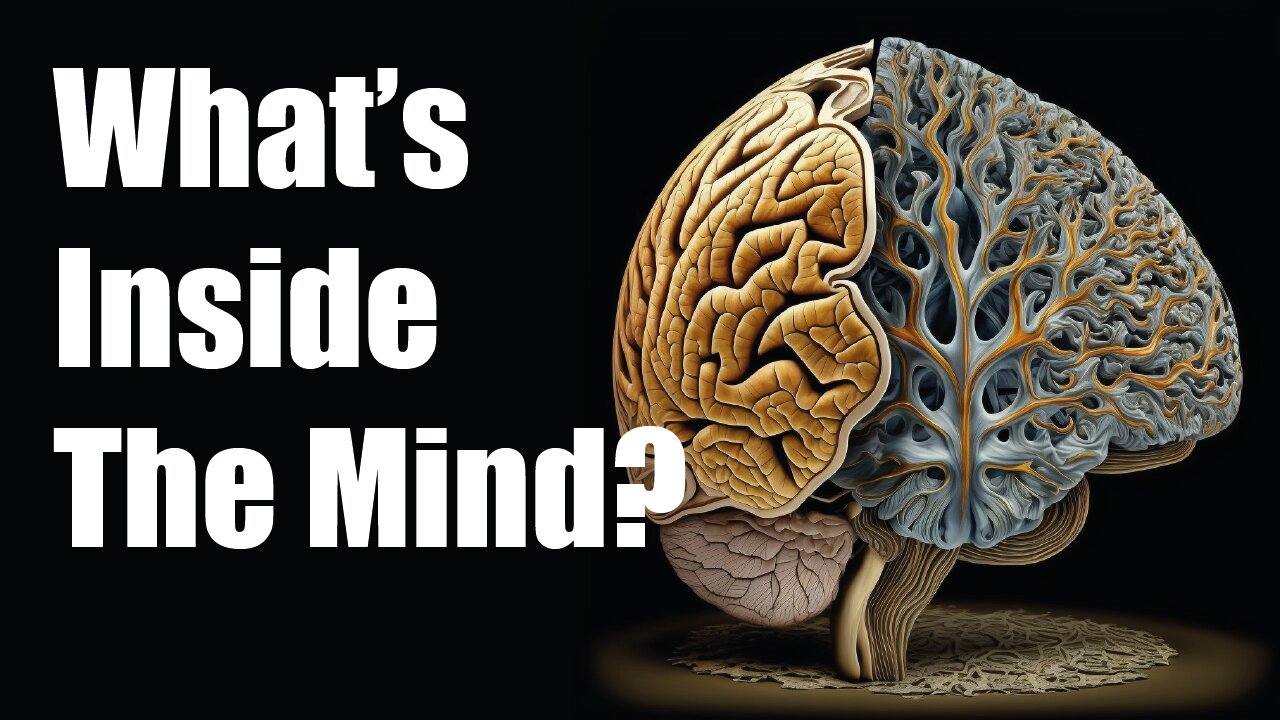Premium Only Content

Human Brains Explained - How the mind works?
The human brain is an incredibly complex and fascinating organ, responsible for controlling all functions of the body and enabling us to think, feel, and perceive the world around us. It is the most complex organ in the human body, and consists of more than 100 billion nerve cells (neurons) and trillions of supportive cells known as glial cells. The brain is the center of the nervous system and is responsible for receiving and interpreting sensory information, as well as initiating and coordinating bodily functions and behaviors.
The brain is divided into three main parts: the cerebrum, the cerebellum, and the brainstem. The cerebrum is the largest and most highly developed part of the brain, and is responsible for most of the brain's functions. It is divided into two hemispheres (left and right), and is responsible for conscious thought, perception, emotion, and voluntary movement. The cerebellum is located under the cerebrum and is responsible for coordination and balance. The brainstem is the lower part of the brain, and is responsible for controlling basic life support functions such as breathing, heart rate, and blood pressure.
The cerebrum, also known as the cerebral cortex, is the largest and most highly developed part of the brain. It is responsible for most of the brain's functions, including conscious thought, perception, emotion, and voluntary movement. The cerebrum is divided into two hemispheres (left and right), and each hemisphere is further divided into four lobes: the frontal lobe, parietal lobe, temporal lobe, and occipital lobe.
Overall, the cerebellum is an important and highly specialized part of the brain, responsible for coordinating and controlling movement, as well as maintaining balance and posture. It plays a key role in many different functions, and is essential for our ability to move and interact with the world around us.
The brain is composed of several different types of cells, including neurons and glial cells. Neurons are the primary cells responsible for transmitting information throughout the brain and body. They have a cell body, dendrites, and an axon. Dendrites are short, branching processes that receive information from other neurons, and the axon is a long, thin process that transmits information to other neurons or to muscles or glands. Glial cells, also known as glia, support and protect neurons by providing them with nutrients, insulating them with myelin, and helping to remove waste products.
The brain communicates with the rest of the body through the nervous system, which is made up of the central and peripheral nervous systems. The central nervous system (CNS) consists of the brain and the spinal cord, and the peripheral nervous system (PNS) consists of all the nerves that lie outside the brain and spinal cord. The PNS is divided into the somatic and autonomic nervous systems. The somatic nervous system controls voluntary movement, while the autonomic nervous system controls the body's internal organs and glands, such as the heart, lungs, and digestive system.
The brain is capable of amazing feats, including learning, memory, and decision-making. It is also capable of producing a wide range of emotions and is the source of our personality and individuality. The brain is constantly adapting and changing, a process known as neuroplasticity, which allows it to adapt to new experiences and information.
Despite all we have learned about the brain, there is still much we do not understand. Research into the brain and the nervous system is ongoing, and new discoveries are constantly being made. Studying the brain has the potential to yield important insights into a wide range of fields, including psychology, biology, and medicine, and may help us to better understand and treat a variety of neurological disorders.
In conclusion, the human brain is a complex and fascinating organ that is responsible for controlling all functions of the body and enabling us to think, feel, and perceive the world around us. It is composed of various types of cells and communicates with the rest of the body through the nervous system. The brain is capable of amazing feats, including learning, memory, and decision-making, and is constantly adapting and changing. Despite all we have learned about the brain, there is still much we do not understand, and ongoing research has the potential to yield important insights into a wide range of fields.
-
 41:18
41:18
Kimberly Guilfoyle
5 hours agoToday, We Kash in on Equal Justice, Live with Ryan Walters & Daniel Turner | Ep.198
54.1K19 -
 1:36:50
1:36:50
Redacted News
4 hours agoThe TRUTH in Ukraine has been EXPOSED by Trump and they are melting down | Redacted w Clayton Morris
86.8K124 -
 2:05:35
2:05:35
The White House
5 hours agoPresident Trump Hosts a Reception Honoring Black History Month
49.8K35 -
 DVR
DVR
Josh Pate's College Football Show
5 hours ago $0.12 earnedCFP Expansion: Latest Intel | CFB’s Schedule Problem | Arch Manning Hype | ACC Program Rankings
5.96K2 -
 55:52
55:52
LFA TV
1 day agoTrump vs. Europe | TRUMPET DAILY 2.20.25 7PM
7.85K1 -
 31:02
31:02
Chrissy Clark
2 hours agoAn IVF Nightmare, Trump’s Illegal Immigration Crackdown, & Biden’s Student Loan Plan BLOCKED I URS
4.07K6 -
 1:02:57
1:02:57
In The Litter Box w/ Jewels & Catturd
1 day agoKASH CONFIRMATION TODAY! | In the Litter Box w/ Jewels & Catturd – Ep. 746 – 2/20/2025
99.7K69 -
 56:44
56:44
VSiNLive
4 hours ago $4.35 earnedFollow the Money with Mitch Moss & Pauly Howard | Hour 1
72.1K3 -
 1:08:41
1:08:41
John Crump Live
8 hours ago $1.80 earnedUSA v. Canada! Bigger Than Just A Game
31.4K6 -
 1:58:40
1:58:40
Revenge of the Cis
5 hours agoEpisode 1450: Wet Work
44.7K3